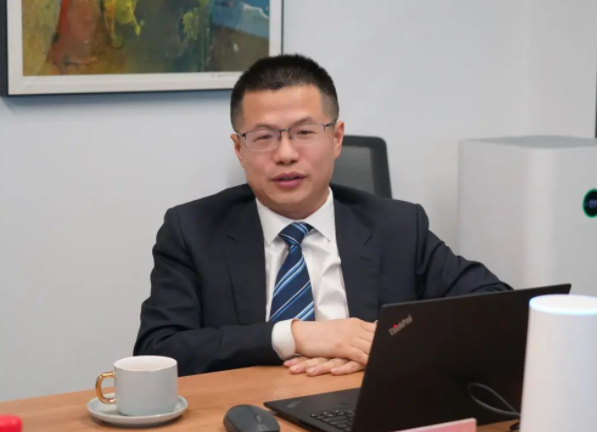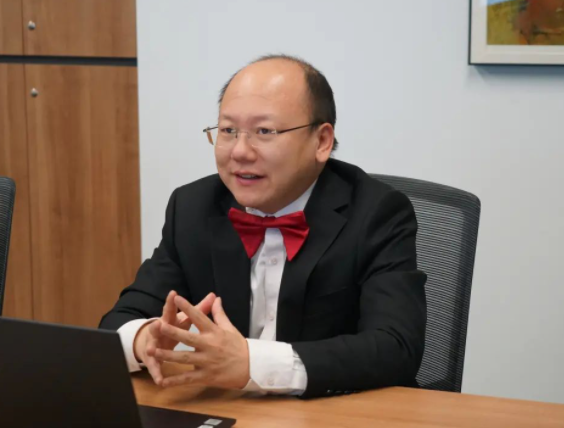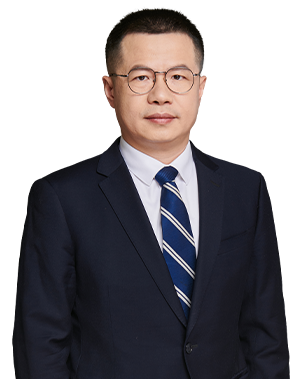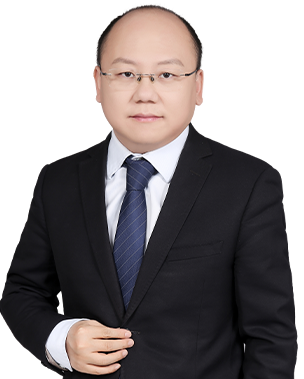Lecture Record | Interpretation of Hot Issues on Anti monopoly Declaration of Concentration of Financial Institutions and Private Equity Fund Operators
On January 24, 2022, the "Gaopeng Law Salon: Hot Issues of Financial Institutions and Private Equity Fund Operators' Centralized Anti monopoly Declaration" held by Gaopeng Law Firm was held in the first conference room of the institute. Lawyer Jiang Liyong, Senior Partner of Gaopeng Law Firm, and Lawyer Gao Liang, Partner, were invited to serve as lecturers in this salon, explaining hot issues such as concentration activities of financial enterprises and private equity operators. The following content is organized according to the content of this lecture.
We are now starting today's lecture, which is also a great pleasure. Today's activity is an upgraded version of our Gaopeng Law Firm Reading Club, which is the first activity of our legal salon. I myself and Mr. Gaoliang will give a lecture on the concentration of business operators.
First of all, let me share with you the topic of "Interpretation of Hot Issues in Anti monopoly Declaration of Financial Institution Concentration of Operators".

Lawyer Jiang Liyong
We have noticed that recently, several banks have been punished for failing to declare concentration of operators. I understand that there are also some financial institutions that have almost no understanding of the concentration declaration system, because the business departments of banks and financial institutions are relatively finely divided, and their legal affairs usually deal with some daily operational issues, but they have relatively little understanding of the basic situation of some antitrust regulations.
Recently, we have noticed two such cases. Bank of Nanjing and Suning have jointly established a Suning Consumer Finance Co., Ltd., but they have not declared it. In this case, both Suning and Bank of Nanjing were punished, and both were top notch penalties. In July of 21, of course, this was punished against the backdrop of strengthened supervision of Internet companies.
Therefore, in the context of preventing disorderly expansion of capital, the regulatory authorities have actually increased their penalties. Basically, since the second half of last year, all penalties have been capped at 500000 yuan. However, after the revision of the antitrust law, it will be differentiated: a penalty of 5 million yuan will be imposed for those that have no impact on competition, and a penalty of 10% of annual revenue will be imposed for those that have an impact on competition, Therefore, the amount of penalties will be high in the future. For this reason, some customers have not paid much attention to the legal risk of not reporting in the past, and may pay great attention to it in the future.
Another case is CITIC Bank, which jointly established a financial company with a subsidiary of Baidu and failed to declare, resulting in a fine of 500000 yuan. There are also cases where insurance companies should declare but not declare, such as joint ventures established by China United Insurance and Shanghai Yunxin Venture Capital.
First of all, what are the standards for financial institutions?What is a financial institution?The second is the issues that financial institutions need to pay attention to when reporting, and finally, compliance recommendations.
The general declaration standard for concentration of business operators is known to all. If you only look at China's revenue, it requires that each enterprise's revenue exceed 400 million, and then total over 2 billion.
If you don't have 2 billion yuan in China, but you have 10 billion yuan in the world, that's okay, so these two standards are generally used.
Let's first take a look at what a financial institution is, because now customers often ask such questions, such as is private equity a financial institution?Our preliminary conclusion is that private equity funds are not financial institutions because they have not obtained a financial institution operating license, although they have been filed with the China Foundation Association.
Generally, we understand financial institutions as banks, securities, insurance, futures, public funds, etc.
So are quasi financial institutions, such as small loans and factoring, financial institutions?These institutions are generally regarded as quasi financial institutions, and the regulatory authority rests with the local authorities rather than the central authorities. They generally do not obtain a financial institution operating license, but rather a special operating license issued by the local financial office. Therefore, we tend to and do not regard them as financial institutions.
The Measures for Calculating the Turnover Declared by Financial Industry Operators in a Centralized manner stipulates exceptional methods for calculating operating income for financial institutions. The calculation standard for the declaration threshold is not 400 million, but 4 billion. Multiplying by 10 times, therefore, is equivalent to giving financial institutions a preferential policy. For financial institutions with small operating income, there is no need to report frequently.
From the perspective of specific calculation methods, the "Methods" also make provisions. For example, taking banks as an example, it includes interest income, net income from handling fees and commissions, investment income, income from changes in fair value, exchange income, and other business income. However, it is more special to deduct taxes and surcharges. Generally, taxes and surcharges are deducted when calculating profits, but there is no need to deduct them when calculating turnover. This is also the particularity of the calculation of business concentration turnover.
Other issues that need attention for concentration of operators in financial institutions are mainly market segmentation. What is special is the service industry. In defining relevant products and geographical markets, it is necessary to consider their particularities. In particular, in terms of geographical markets, it is necessary to consider whether different jurisdictions' different financial regulatory policies need to be defined as national markets. Of course, we have also seen that in some cases, such as the case where MS&AD Insurance Group Holdings Co., Ltd. acquired the equity of Bank of Communications Kanglian Life Insurance Co., Ltd., the geographic market of reinsurance is defined as the global market. However, accidental injury insurance services and health insurance services are defined as the Chinese Mainland market.
For financial institutions, if they or their controlling subsidiaries conduct some mergers and acquisitions, they may follow the normal internal approval process as well as the external approval process for submission to the CIRC for approval. However, they may not expect to apply for concentration of operators, as it is not a customary approval process. Therefore, the first thing to note is that the declaration is required.
Secondly, if it is found that there has been no declaration in the past, we also recommend that the relevant enterprises submit themselves early, supplement the declaration, and accept punishment. "Because after the amendment of the Anti monopoly Law, the amount of fines will be higher.".
From the perspective of conditional conditions, the concentration of financial institutions has not yet attracted the attention of regulatory authorities. To date, among all conditional cases by China's antitrust authorities, no typical financial institutions have been involved. Moreover, more importantly, financial institutions have strong industry regulatory authorities, including one bank, three committees. Therefore, even if competition concerns are raised, regulatory support can be used to dispel the competition concerns of the antitrust authorities.
So that's what I'm going to talk about today. Next, let's invite lawyer Gao Liang to introduce the concentration declaration of private equity funds. Let's invite lawyer Gao Liang.

Lawyer Gao Liang
I move on to lawyer Jiang's next topic. My topic is the antitrust declaration related to private equity investment fund investment. Compared to the antitrust declarations of other financial institutions and other industries, the antitrust declarations of private equity investment funds have their own characteristics. I have done relevant cases before and have some research experiences in this field. I will report to you on this issue.
The outline of my lecture today is divided into five parts. The first part discusses the introduction and enforcement dynamics of private equity investment fund antitrust reporting, the second part discusses the filing standards and turnover calculation issues of private equity investment fund antitrust reporting, and the third part discusses the control rights of private equity investment fund antitrust reporting, The fourth part discusses the substantive review of private equity investment fund antitrust filings. If a case needs to be filed, the General Administration will pay more attention to what circumstances may lead to exclusion or restriction of competition during the review process. The final part discusses the issue of compliance recommendations.
First of all, let's talk about the introduction and law enforcement dynamics of private equity fund antitrust declaration.
According to the current application cases announced by the General Administration, the number of cases involving private equity investment funds is very large, not only in China, but also in other major jurisdictions. Let me take the European Union as an example. According to publicly available data, in 2016, the European Commission reviewed a total of 362 cases, of which 35% involved private equity funds. Of the 245 simple cases, about 45% involved at least one private equity fund. I have not conducted a study on the proportion of cases reported by private equity funds in China in a specific year, However, it can be imagined that this proportion should also be very high.
Next, on January 5, 2022, the State Administration of Taxation announced a case involving the acquisition of "preemptive" private equity funds: "Tencent Holdings Co., Ltd. and Shanghai Huasheng Lingfei Equity Investment Partnership (limited partnership) acquired the equity of Beijing Minglue Software System Co., Ltd. without legally declaring and illegally implementing a concentration of operators.". In this case, Tencent Holdings and Shanghai Lingfei acquired the equity of Beijing Minglue Software Co., Ltd., but they did not declare according to law. After the transaction was completed, Tencent and Shanghai Lingfei jointly controlled the target company Beijing Minglue Software through equity acquisition, and joint control itself is a very important control method for private equity investment funds. Leadfly is a fund registered with the China Securities Investment Fund Industry Association in 2016, and is a typical private equity fund. Its main business is private equity investment. With the emergence of this "preemptive" case involving private equity acquisitions, there may be more "preemptive" cases involving private equity acquisitions being investigated in the future.
As mentioned above, the number of filing cases involving private equity investment funds is very large, while private equity funds are mainly engaged in equity investment business and invest in many target companies, resulting in correspondingly high turnover. Therefore, their acquisition behavior is very easy to trigger the anti monopoly filing threshold.
Next, let's discuss with you the antitrust declaration threshold and turnover calculation issues related to private equity investment fund investment.
First of all, let's talk about three situations of concentration of business operators: The first is merger, including merger by new establishment and merger by absorption. Both forms of merger belong to concentration of business operators. The second type is that an operator obtains control over other operators by acquiring equity or assets, mainly including two types: equity acquisition and asset acquisition, both of which belong to the operator pool. The third method is to obtain control over other operators through contract. According to the standards for concentration declaration issued by the State Council, if one of the following standards is met, operators should report to the anti monopoly department in advance. Without reporting, concentration is not allowed. What does this mean?Explain that if a transaction constitutes a concentration of operators and simultaneously meets the reporting standards, then the declarant is obliged to make a prior declaration to the antitrust department.
Next, we will discuss the issue of anti monopoly declaration standards. Lawyer Jiang also mentioned this issue just now. Generally speaking, we have two declaration standards: that is, at least two operators have achieved a turnover of 400 million yuan in China in the previous year, and the total turnover of all operators in China exceeds 2 billion yuan, Or if the total global turnover of all operators exceeds 10 billion yuan and meets one of the above criteria, it shall be deemed to have met the declaration criteria. The calculation of the turnover of private equity investment funds is subject to this common reporting standard, rather than the antitrust reporting standard of the financial industry.
Next, I will talk about the calculation of turnover involved in the concentration of private equity fund operators.
Compared with the calculation methods of turnover in other industries, the calculation methods of turnover in the private equity fund industry have their own characteristics. Specifically, when calculating the turnover of a private equity investment company, it not only includes the turnover of the private equity investment company itself, but also includes the turnover of all portfolio companies controlled by it. This calculation method makes it easier for large private equity investment companies to achieve the concentration reporting standard for their acquisitions. Private equity investment companies typically establish investment funds as a tool for external investment activities, while investment funds typically exist in the form of limited partnerships, where investors act as limited partners (LPs), while investors, that is, limited partners, typically have no control over the investment fund itself, while the general partner (GP) has control over it. The following diagram can help you understand how to calculate the turnover of private equity investment funds.
In this diagram, two funds under a PE Firm acquire equity in the target company through their SPVs. I just told you about the calculation method. GP has control over the private equity fund. Therefore, when calculating the turnover of PE Firm, in addition to the management and limited partners, The turnover of other relevant entities needs to be fully calculated, including the ultimate controller.
Next, let's talk about the control issues involved in private equity investment.
For private equity investment, independent control is a typical form of control, which means that private equity investment companies usually acquire all or a majority of the equity of the target company. In addition, when the equity is relatively dispersed, The acquisition of minority interests and the holding of the veto power over significant strategic matters of the target company (i.e., negative control) may also lead to the creation of separate control.
The second type of control is joint control. Generally, two or more private equity investment companies acquire the equity of the same target company, or a private equity investment company acquires part of the equity of the target company to form a situation of joint control with the original shareholders of the target company. The most common form of joint control is that two major shareholders respectively hold 50% of the voting rights of the target company or have the same number of directors on the board of directors. Like independent control, holding a minority stake and enjoying the veto power over significant matters of the target company is also an important form of joint control, which is a negative form of joint control. Through the antitrust filing cases disclosed by the General Administration, it can be seen that the proportion of filing cases that generate joint control through negative control is also very high.
The third point to share with you is management control. Regarding the acquisition of private equity investment funds, in order to maintain the stability of the target company's team during the acquisition process and from the perspective of enhancing the consistency of interests between both parties, private equity investment companies usually give a certain amount of equity to the management of the target company as part of the acquisition consideration, and the equity held by the management itself may also lead to the generation of control rights. If there is a situation where the management has control, this antitrust declaration will become more complex, involving issues such as turnover calculation, related market segmentation issues, and changes in market competition structure. The complexity of material preparation and review will greatly increase.
Next, let me talk about the substantive assessment issues involved in the declaration of private equity investment funds.
Generally speaking, although the number of antitrust filing cases involving private equity fund acquisitions is very large, conditional or prohibited cases arising from private equity fund acquisitions are very rare. Why is this happening?Generally speaking, when private equity funds invest, the business areas of the target company often do not have a horizontal overlap relationship with the business areas of its portfolio companies. Therefore, such transactions will not lead to an increase in market share in the relevant market, thereby affecting the market structure. A private equity fund is essentially an investment entity, and its operational purpose is different from that of ordinary manufacturing or other physical industries. Its purpose is to conduct investment activities and wait for the appropriate opportunity to exit to achieve its benefits. Therefore, in many cases, private equity funds and their portfolio companies do not have an overlapping relationship with the business of the invested target company. Therefore, the market share within the relevant commodity market will not increase, nor will there be issues affecting the market competition structure, so it is also difficult to have the effect of restricting or eliminating competition.
Compared to horizontal acquisitions, private equity fund investments are sometimes more likely to involve vertical acquisitions. In the case of vertical mergers and acquisitions, the antitrust review risks brought by them mainly come from the blockade risk. Of course, the premise for this risk is that the operator generally has a high market share in at least one of the upstream and downstream markets. If the market share is very low, it is difficult for the operator to have market power to implement the blockade behavior. Even so, cases of vertical mergers and acquisitions involving private equity funds that have the effect of excluding or restricting competition are very rare. In recent years, EU competition law has paid more attention to the issue of bolt-on acquisitions involving private equity fund investments. The so-called bolt-on acquisitions refer to the acquisition of a smaller target company by a portfolio company to strengthen and restructure its associated portfolio companies, with a view to maximizing value when exiting in the future. Complementary acquisitions may result in horizontal overlap, vertical relationships, or mixed relationships in the sense of antitrust law. Competition agencies conduct reviews in accordance with similar review methods for mergers and acquisitions in other industries, such as in the Case No COMP/M.6665-SUN CAPITAL/REXAM PERSONAL AND HOME CARE PACKAGING BUSINESS case, The European Commission conducted a detailed analysis of the horizontal and vertical relationship between the target company Rexam PC business and the portfolio company business of private equity fund SUN CAPITAL.
Generally speaking, the possibility of private equity fund investment excluding or restricting competition in relevant markets is not significant. As far as I understand, among all the conditional and prohibited declaration cases announced by the State Administration, there has not yet been a case involving the investment behavior of a typical private equity fund. Therefore, on the whole, the anti monopoly declaration of private equity investment funds is more of a pre procedural requirement, and to meet the declaration threshold, it is necessary to submit an anti monopoly declaration to the State Administration.
Finally, let's talk about the issue of compliance recommendations.
Here, I mainly talk about three points: The first point is about the issue of "preemption". In short, "rushing" means that you should have filed a transaction without filing or implemented a transaction before it was approved after filing. The recently promulgated Anti monopoly Law (Revised Draft) has new provisions on the legal liability of "preemptive competition", including a fine of up to 10% of the group's sales in the previous year for a "preemptive competition" case that has or may have the effect of eliminating or restricting competition, and a fine of up to 5 million yuan for a case that does not have the effect of eliminating or restricting competition, Therefore, the punishment intensity is much higher than that stipulated in the current "Anti monopoly Law". The second point is whether a transaction constitutes a concentration of operators and meets the reporting standards. In compliance, it is recommended that private equity funds introduce relevant lawyers to preliminarily determine whether this transaction constitutes concentration; If concentration is not constituted, the case will not trigger the declaration obligation. If concentration is constituted, go further to see if the transaction has met the declaration standards. If it has, it means that the declaration obligation within China has been triggered. Lawyers need to formally start preparing the declaration documents.
Thirdly, when preparing application materials, lawyers need to define relevant markets and conduct competitive analysis on this basis. In this process, effective cooperation between private equity investment funds and target companies is required to assist lawyers in accurately defining relevant markets. It is usually necessary for the applicant to prepare relevant materials to cooperate with the lawyer's work.
In general, although the possibility of the acquisition of private equity investment funds having restrictive or competitive effects is not high, it is very easy to trigger antitrust reporting obligations. As the penalties for "preemption" gradually increase in the future, it is recommended that private equity investment funds pay high attention to antitrust compliance issues when conducting investment activities.
Related recommendations
- Tax lawyers review the draft of the revised Tax Collection and Administration Law for soliciting opinions
- New Measures for Punishing "Dishonesty" by the Supreme People's Court at the Two Sessions in 2025 (Part 3): "Height Limit" Single Release Mechanism
- New Measures for Punishing "Dishonesty" by the Supreme People's Court at the Two Sessions in 2025 (Part 2): Grace Period System
- Interpretation of the Management Measures for Compliance Audit of Personal Information Protection - Feeling the Rhythm and Rhythm of Regulatory Flow




